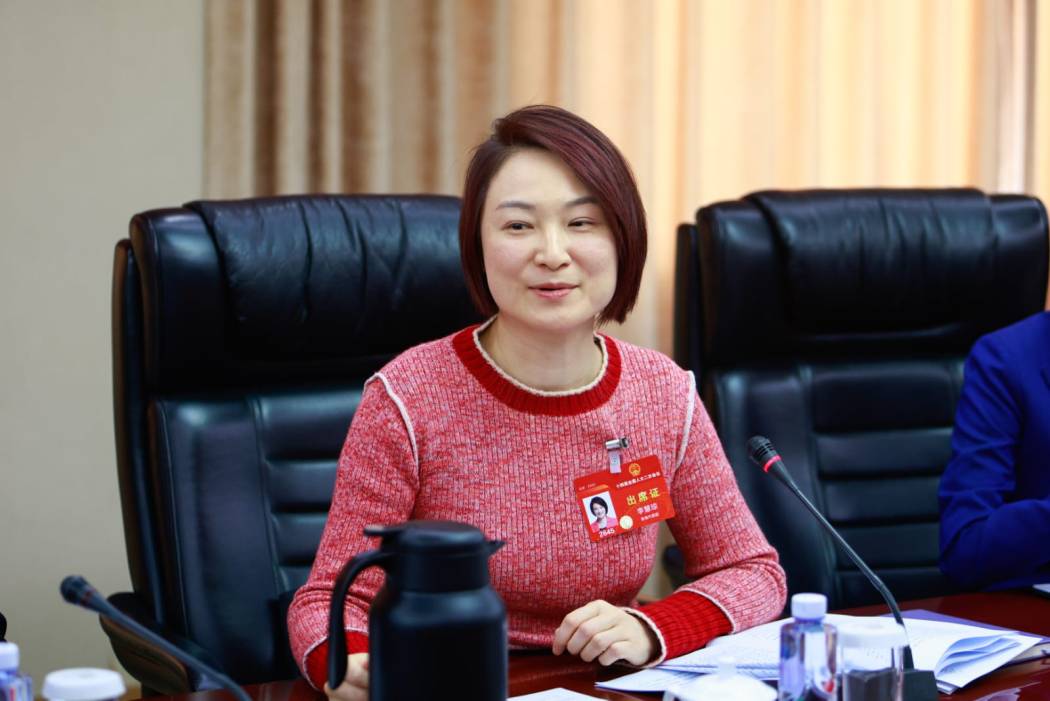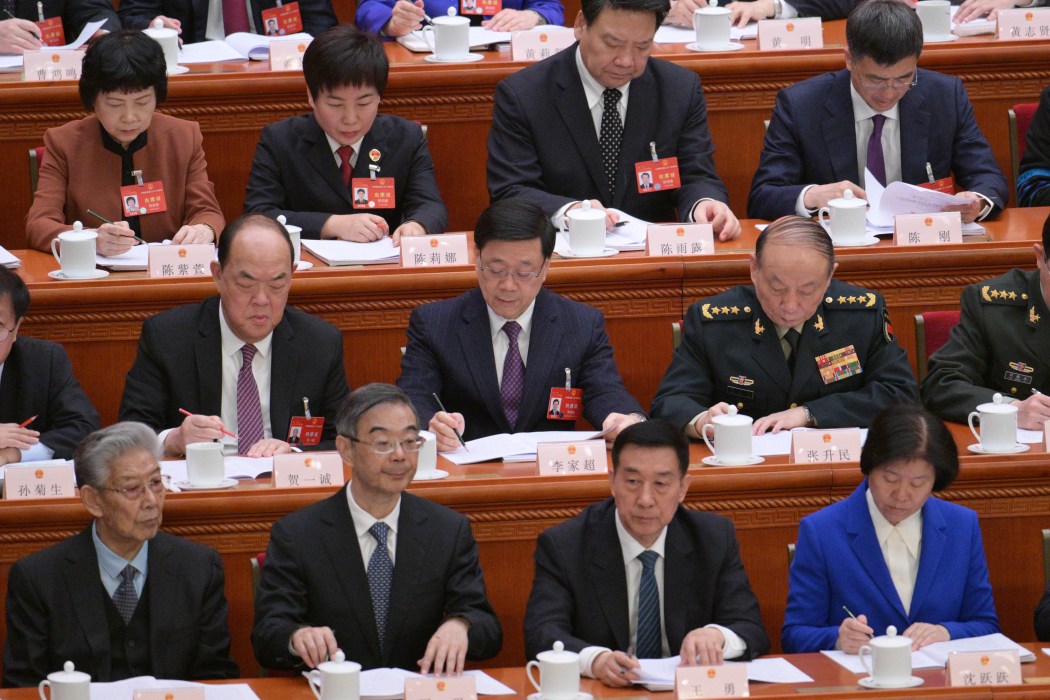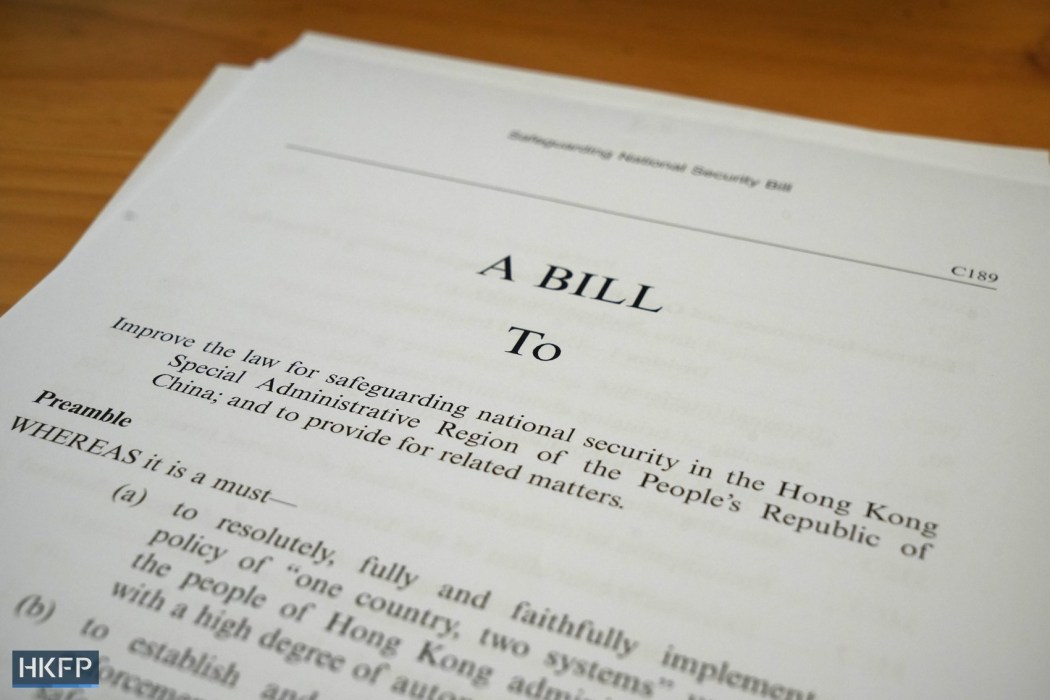Hong Kong’s sole delegate to China’s top political body has said she felt Beijing’s “care and support” for Hong Kong during an annual parliamentary gathering, adding that she would take the “spirit” of the key Two Sessions meetings to the local community.

Starry Lee, a member of the National People’s Congress Standing Committee, spoke to the media group that runs state-backed newspapers Ta Kung Pao and Wen Wei Po as the Two Sessions ended in Beijing on Monday.
“The central authorities’ seminars clearly showed the central government’s care and support [for Hong Kong],” Lee said in Mandarin.
China’s number two official Premier Li Qiang is highly concerned with “other situations in Hong Kong” including the legislation of Article 23, Lee said, referring to the domestic security law that is currently being discussed in the Legislative Council.
Lee added that Hong Kong delegates to the National People’s Congress, China’s legislative body, would serve as a communication bridge.
“The premier also has a wish that we would take the spirit of the Two Sessions and spread it widely in Hong Kong society,” said Lee, who is also a lawmaker and the chairperson of the city’s biggest pro-Beijing party, The Democratic Alliance for the Betterment and Progress of Hong Kong.

The Two Sessions, an annual gathering of Beijing’s political elites, drew to a close on Monday. The week-long event saw pledges by officials to do more to boost China’s ailing economy and prioritise national security.
Regarding Hong Kong, Li said on the first day of the meetings that Hong Kong should continue implementing the governing principles of One Country, Two Systems and “patriotic administration.”
Meanwhile, a press conference traditionally held by the premier at the end of the Two Sessions was scrapped this year. The event was a rare opportunity for foreign media outlets to question China’s top leaders directly, albeit usually with questions vetted ahead of time.
209 suggestions submitted
The Two Sessions in Beijing took place as the draft bill of Article 23, Hong Kong’s homegrown security law, was introduced to the legislature for lawmakers to discuss.
Separate from the national security law that Beijing imposed on the city after the 2019 protests, the domestic security legislation seeks to criminalise five offences: treason, insurrection, theft of state secrets and espionage, sabotage endangering national security, and external interference. Under Article 23 of Hong Kong’s Basic Law, the city is obliged to pass its own security legislation.

Ahead of the bill’s introduction to the legislature, Chinese Vice-Premier Ding Xuexiang met with Hong Kong deputies to the National People’s Congress on Thursday. Ding is the head of the Central Leading Group on Hong Kong and Macau Affairs, the highest body overseeing China’s policy towards the two territories.
Lawmaker Ma Fung-kwok, one of the deputies, told reporters after the meeting that Xue said the central authorities “fully supported” the legislation of Article 23.
See also: What is Article 23? Hong Kong’s homegrown security law is back in the spotlight
Brave Chan, also a deputy, cited Ding saying that the domestic security law would safeguard national interests and Hong Kong’s stability.
Hong Kong’s deputies to the National People’s Congress submitted 209 suggestions to central authorities during the Two Sessions, Ma told local media outlets on Sunday. Among them were proposals to increase the duty-free allowance for mainland Chinese tourists in Hong Kong from HK$5,000 to HK$30,000, as well as expand the multiple-entry visas to residents from more mainland cities.
Support HKFP | Policies & Ethics | Error/typo? | Contact Us | Newsletter | Transparency & Annual Report | Apps
Help safeguard press freedom & keep HKFP free for all readers by supporting our team

LATEST FROM HKFP
HKFP has an impartial stance, transparent funding, and balanced coverage guided by an Ethics Code and Corrections Policy.
Support press freedom & help us surpass 1,000 monthly Patrons: 100% independent, governed by an ethics code & not-for-profit.










